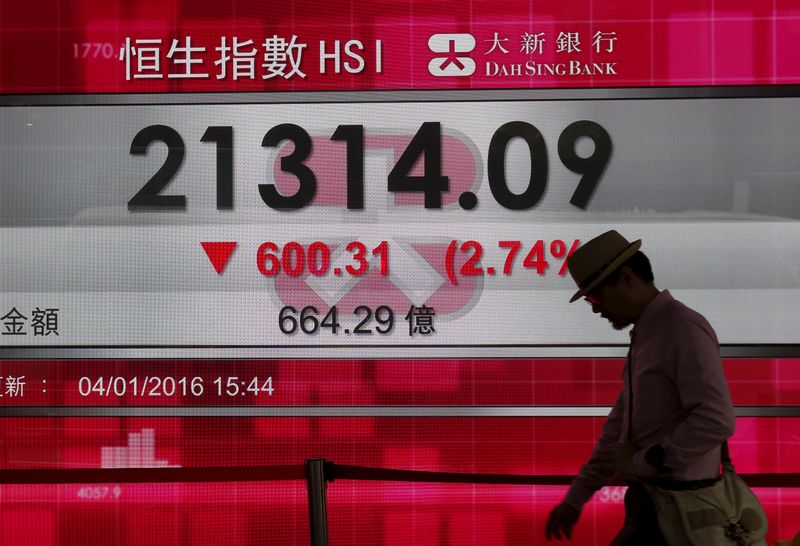Investing.com-- Asian stocks retreated on Tuesday after four straight days of gains as key trade data pointed to more economic headwinds for China, while the Reserve Bank of Australia hiked interest rates and flagged a stickier outlook for inflation.
Regional markets saw a heavy dose of profit taking, with South Korea’s KOSPI down 3% as investors locked in profits from an over 4% jump in the prior session. The KOSPI marked its best day in over three years after the South Korean government banned short-selling until end-June 2024.
But given that the underlying fundamentals for South Korean markets- specifically slowing economic growth and weakening demand in China- remained the same, the KOSPI quickly reversed most gains.
Broader Asian markets were also hit with a measure of profit taking, as markets somewhat reconsidered expectations that the Federal Reserve will pause its current rate hike cycle.
Overnight comments from Fed officials struck a hawkish note, particularly as Minneapolis Fed President Neel Kashkari warned that the central bank may not be done raising rates.
Expectations of a pause in the Fed’s rate hikes, especially after weaker-than-expected payrolls data, had spurred strong gains in Asian stocks over the past four sessions.
But Treasury yields rebounded on Monday following Kashkari's comments, giving Wall Street indexes a muted session and providing a weak lead-in to Asian markets.
Japan’s Nikkei 225 index fell 1.1% on Tuesday after rallying around 6% over the past four sessions, while India's NSEI fell 0.2% after rising 0.8% in the prior session.
Chinese trade data disappoints, stocks fall
China’s Shanghai Shenzhen CSI 300 and Shanghai Composite indexes fell 0.7% and 0.4%, respectively, while losses in heavyweight technology stocks saw the Hang Seng lose 1.5%.
Chinese exports fell more than expected in October, while the country’s trade surplus narrowed to its worst level in 17 months.
While imports unexpectedly grew in the month, the decline in exports and the shrinking trade balance signaled worsening demand in China's biggest export destinations.
This heralded more economic headwinds for the country, especially as economic conditions in its biggest markets worsen.
Most Southeast Asian markets sank tracking losses in China, with the Jakarta Stock Exchange Composite Index and the FTSE Malaysia KLCI down 0.7% and 0.3%, respectively. Philippine shares were flat after data showed inflation grew less than expected in October.
Chinese inflation data is also due later this week.
Australian stocks dip as RBA hikes rates
Australia’s ASX 200 index fell 0.2%, slightly trimming losses after the Reserve Bank of Australia (RBA) hiked interest rates by 25 basis points, as expected.
The move comes following an uptick in Australian inflation over the past quarter, and points to tighter monetary conditions for local stocks.
The RBA forecast that inflation will remain higher for longer over the next two years, presented a muted outlook for the economy.
But Australian stocks were somewhat encouraged by signs of resilience in Chinese imports, given that the country is Australia's biggest trading partner.
